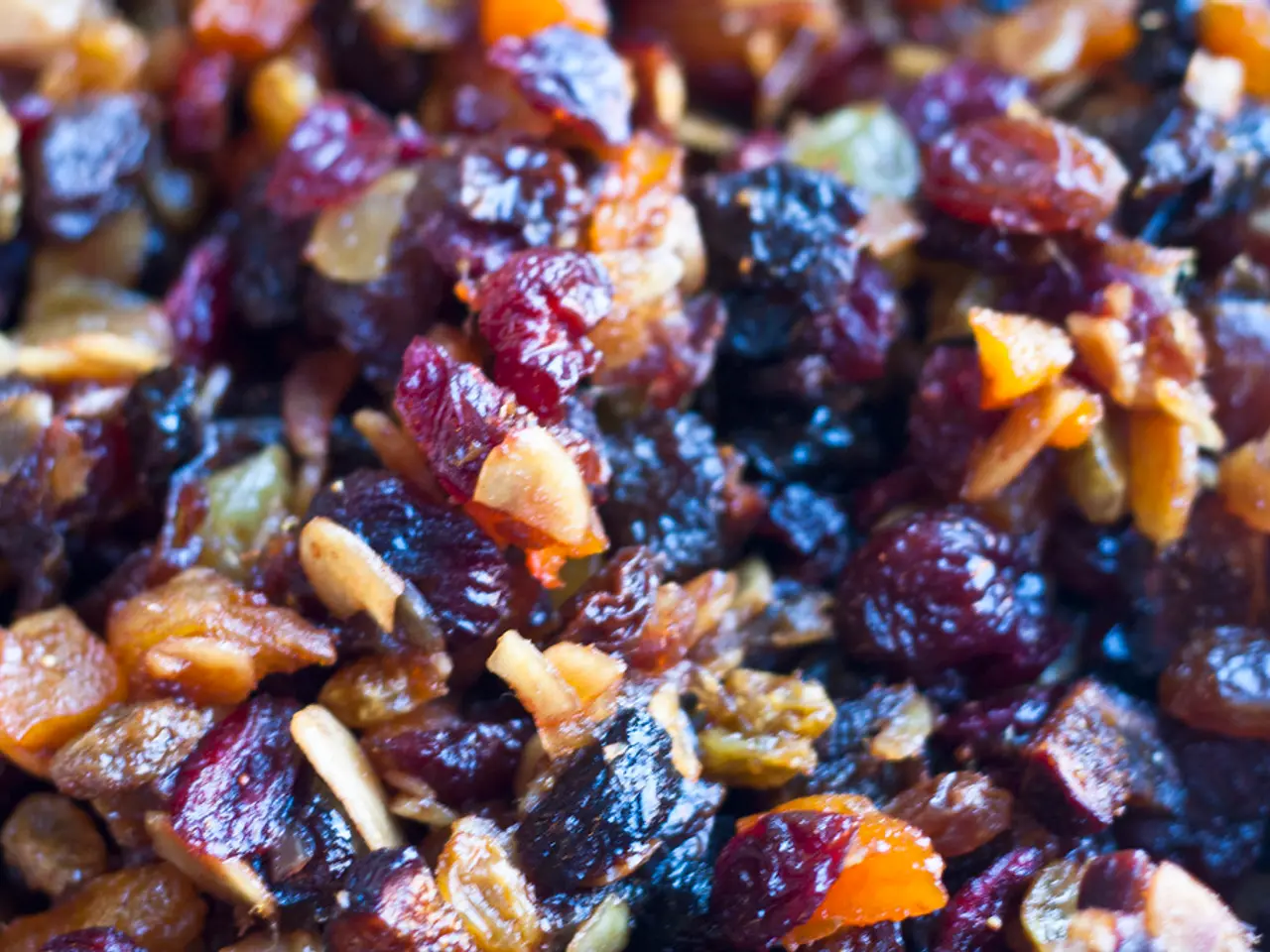Effects of Sensory Quality Intensity, Emotional Responses, and Non-Sensory Elements on Consumer Intention to Buy Mixed Vegetable Juice in Informed Tasting Scenarios
In a recent study, the intriguing relationship between emotions, sensory experiences, and consumer behavior was explored, focusing specifically on vegetable juice products. The research did not delve into the long-term effects of repeated consumption on purchase behavior but shed light on the immediate factors that influence decisions.
The findings suggest that emotional needs act as internal stimuli, driving consumers towards vegetable juice. For instance, a desire for well-being or health consciousness can initiate the purchase process. Sensory cues, such as taste, aroma, and visual appeal, then strengthen this motivation by enhancing the product's appeal.
Non-sensory cues, including branding, advertising, and social influences, further shape perceptions and expectations. Positive emotional sentiment, whether evoked through personal experience or marketing, has been shown to boost purchase intentions across various product categories.
Interestingly, the study found that products with higher purchase intent ratings elicited lower levels of negative emotions and higher levels of positive emotions. However, it did not consider the influence of price or promotional offers on consumer behavior.
The study involved 69 adults who were asked to evaluate five commercially-available vegetable juice samples under informed tasting conditions. Sensory attribute intensities, non-sensory factors, emotional responses, purchase intent ratings, and consumer choice were measured for each sample.
Emotional responses were assessed using a self-reported emotion questionnaire, facial expression analysis, and autonomic nervous system responses. The results indicated that sensory attribute intensity (bitterness) and non-sensory factor (brand liking) significantly impacted purchase-related behavior of vegetable juice products.
In conclusion, the study underscores the importance of marketing vegetable juice products effectively by appealing simultaneously to consumers' emotions, sensory experiences, and contextual cues to influence their buying behavior decisively. Understanding these factors can help businesses create strategies that resonate with consumers and drive sales.
References:
- Emotional needs and internal stimuli drive recognition and purchase motivation.
- Positive personal sentiment significantly enhances purchase intentions.
- Emotional and cognitive triggers, supported by sensory appeal, drive impulse buying in food contexts.
- The study did not consider the influence of price or promotional offers on consumer purchase behavior of vegetable juice products.
- The study used a self-reported emotion questionnaire, facial expression analysis, and autonomic nervous system responses to measure emotional responses.
- Sensory attribute intensity (bitterness) and non-sensory factor (brand liking) play an extremely important role in purchase-related behavior of vegetable juice products.
- Sixty-nine participants were asked to evaluate five commercially-available vegetable juice samples under informed tasting conditions.
- The study found that sensory attribute intensity (bitterness) and non-sensory factor (brand liking) significantly impacted purchase-related behavior of vegetable juice products.
- The study did not find any significant correlation between sensory attribute intensities and emotional responses, or between non-sensory factors and emotional responses.
- The five samples significantly differed with respect to sensory attribute intensities, non-sensory factors, and emotional responses measured by EQ and FEs.
- This study investigates the impacts of sensory attribute intensities, non-sensory factors, and emotions on consumer purchase behavior of vegetable juice products.
- The study concludes that non-sensory factors in combination with sensory attributes and emotions measured using EQ and FE can modulate consumer purchase intent toward vegetable juice products under informed tasting conditions.
- In light of the recent study, it seems that health-and-wellness and lifestyle factors play a significant role in driving consumers towards vegetable juice.
- Moreover, findings suggest that science, specifically the study of consumer behavior, can help businesses in the food-and-drink industry better understand their customers and create strategies that aim at fitness-and-exercise enthusiasts, eliciting positive consumer responses and boosting sales.




